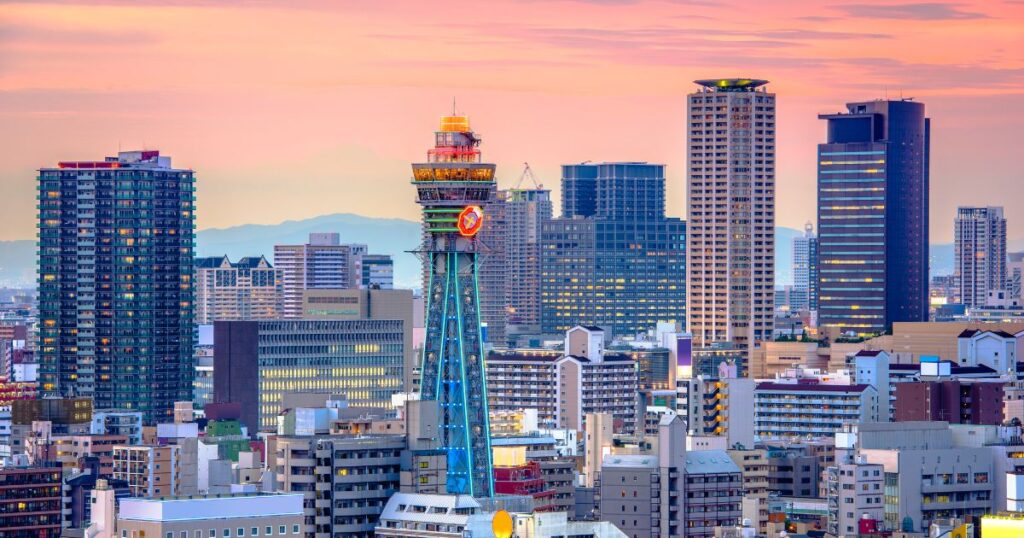As a remote worker eager to travel the world, you may have been dreaming of visiting Japan’s beautiful temples. Or attending one of their famous cherry blossom festivals. Or indulging in truly authentic sushi, katsu, and yakitori.
If this sounds familiar, you’re in luck — with the Japan digital nomad visa, you can make those dreams come true.
Japan’s Immigration Services Agency (ISA) has publicly discussed plans to create a digital nomad visa for some time. They’ve now shared additional details on the visa, including requirements, duration, and launch date.
Below, we’ll walk you through all of the information the authorities have shared so far and discuss some alternative visas that can potentially help you stay in the country on a longer-term basis.
📋 Key Insights for Japan Digital Nomad Visa in 2025
- The income requirement for Japan’s digital nomad visa remains at ¥10 million (~$67,474 USD) annually, making it one of the highest globally for similar visas.
- Digital nomads on this visa are unlikely to qualify as Japanese tax residents since residency typically requires a stay of one year or more. Taxes, if applicable, may only be levied on Japanese-sourced income.
- Japan’s digital nomad visa launched in late March 2024, with full application details available on the Immigration Services Agency website.
Snapshot of Expat Life in Japan
Population: 125.7 million
Capital city: Tokyo
Currency: Japanese yen (JPY)
Official language(s): JapaneseApproximate number of American expats: ~62,500
Background on the Japan Digital Nomad Visa
As the pandemic lessened in severity and travel restrictions eased up, many knowledge workers began to take advantage of their newfound flexibility to travel and work abroad. Governments looking to boost their economies took heed, launching visas specifically designed to attract these teleworkers.
Today, some 50 countries offer dedicated digital nomad visas — a number that continues to grow as other nations see the benefits of bringing in highly skilled, economically solvent workers who can stimulate the economy without adding competition to the local job market.
Even countries historically employing strict immigration policies, like Japan, have gotten on board today. The Japanese government first announced they were developing a digital nomad visa in 2023 and shared some of the concrete details on February 2nd, 2024. The visa went live in late March 2024.
Japan Digital Nomad Visa Requirements & Stipulations
Eligibility & Qualifications
Japan’s digital nomad visa is geared toward remote workers from one of 49 different countries that have signed tax treaties or visa-free short-term travel agreements with Japan, including the US, UK, all EU countries, Australia, South Korea, Singapore, and more. Specifically, these workers must:
- Work for an organization based outside of Japan as an employee or contractor
- Earn a minimum annual income of ¥10 million (~$67,474)
- Hold a private health insurance policy
Duration & Renewal Options
The Japanese digital nomad visa lasts for six months. While they can’t renew it, holders may apply for it again six months after the initial visa has expired.
Permitted Activities & Restrictions
The digital nomad visa holders will be allowed to bring their spouse and children under the visa, provided they purchase individual health insurance policies for them. Because the digital nomad visa is only temporary, they will not be permitted to enter long-term rental contracts in Japan.
Extending Your Stay in Japan
While the digital nomad visa is only intended for short-term stays, savvy digital nomads who meet certain requirements may be able to apply for a long-stay visa.
Below, we’ll discuss three options: the Student Visa, the Highly Skilled Professional (HSP) Visa, and the Business Manager Visa.

Student Visa
By studying in a Japanese educational institution — such as a Japanese language school, university, vocational center, etc. — you can get a visa lasting anywhere from three months to four years and three months, depending on the length of your program.
To successfully apply, you will need to register as a student in a qualifying educational institution and submit the following documents to your designated Japanese consulate in your home country :
- Passport
- Passport-sized photograph
- Completed visa application form
- Certificate of eligibility
To maintain yourself during your studies, you can apply for a work permit allowing you to work up to 28 hours a week. You can receive a work permit by either:
- Handing a completed work permit application form to an immigration officer upon arrival at a Japanese airport
- Submitting a more detailed form at your designated immigration office in Japan
With the work permit, you can seek employment with a Japanese employer or work as a freelancer.
Japan Highly Skilled Professional (HSP) Visa
This visa category makes it easier for highly skilled foreign professionals to work and live in Japan. The visa is not limited to a specific profession but covers a range of fields including academics, researchers, engineers, specialized technicians, and more.
The Highly Skilled Professional visa in Japan encompasses three categories, each with its own criteria and benefits:
- Advanced Academic Researcher: For researchers, scientists, and academics with advanced expertise and achievements in their field
- Advanced Specialized/Technical Professionals: For individuals with advanced skills and extensive experience in fields such as engineering, technology, natural sciences, healthcare, etc.
- Advanced Business Management: For individuals in managerial positions with a high degree of responsibility and expertise in business
To qualify for this visa, you must receive a job offer in one of the fields above and reach at least 70 points, according to the Japanese Immigration Bureau’s points matrix.
If you qualify for and obtain this visa, you’ll be eligible to receive:
- An automatic five-year residence visa
- Permanent residency after one or three years of residence in Japan (depending on your specific circumstances)
- An employment visa for your spouse
- Permission to bring your children, parents, and a nanny, provided they meet specific criteria
Business Manager Visa
This visa category is for individuals who are planning to establish, manage, or operate a business in Japan. It falls under the broader category of work visas and permits individuals to work in managerial positions or engage in business-related activities.
To be eligible for a Business Manager visa in Japan, you typically need to meet certain criteria, including:
- Proof of a legitimate business plan: You need to demonstrate that you have a viable and well-detailed plan for the business you intend to establish or manage
- Investment or capital requirements: Depending on the type of business, you might need to show a certain amount of capital investment
- Relevant experience and qualifications: You may need to demonstrate qualifications and experience that make you suitable for the business management role
- Legal requirements: Your business should adhere to all legal requirements and regulations in Japan
- Potential contribution to the Japanese economy: Your business should have a positive impact on the Japanese economy, such as creating jobs or contributing to local communities
Income Taxes in Japan
Japan uses a progressive tax structure, meaning that as your income increases, so do your taxes. The marginal tax rates in Japan for tax year 2025 (aka the taxes you’ll file in 2025) are as follows:
| Income (JPY) | Income (USD) | Tax rate |
| ¥0 – ¥1,950,000 | $0 – $13,163 | 5% |
| ¥1,950,000 – ¥3,300,000 | $13,163 – $22,276 | 10% |
| ¥3,300,000 – ¥6,950,000 | $22,276 – $46,914 | 20% |
| ¥6,950,000 – ¥9,000,000 | $46,914 – $60,748 | 23% |
| ¥9,000,000 – ¥18,000,000 | $60,748 – $121,496 | 33% |
| ¥18,000,000 – ¥40,000,000 | $121,496 – $269,990 | 40% |
| ¥40,000,000+ | $269,990+ | 45% |
US taxes for Americans Living in Japan
All US citizens and permanent residents must file US tax returns as long as they meet the minimum income reporting threshold. Some tax requirements and breaks that expats should know include the:
- Foreign Earned Income Exclusion (FEIE): Allows you to exclude up to $126,500 (for tax year 2024) of foreign-earned income from taxation and write off qualified housing expenses via the Foreign Housing Exclusion
- Foreign Tax Credit (FTC): Allows you to essentially subtract what you’ve paid in foreign income taxes from what you owe the US government in income taxes
- Foreign Bank Account Report (FBAR): Requires anyone with over $10,000 across foreign accounts to file FinCEN Form 114
- Child Tax Credit (CTC): Allows you to claim up to $2,000 in partially refundable credits for each of your qualifying dependents
- Foreign Account Tax Compliance Act (FATCA): Requires anyone with over $200,000 in foreign assets on the last day of the tax year — or over $300,000 at any point in the year — to file Form 8938 (these thresholds vary for those residing in the US)
Japan Digital Nomad Visa - FAQ
-
What are the taxes for digital nomads in Japan?
Japan has not specifically announced whether holders of the digital nomad visa will be liable for Japanese taxes. However, the visa only lasts six months, and to be considered a Japanese tax resident, you must live in the country for one year or more. So if digital nomad visa holders do need to pay taxes, it’s likely they will only need to pay taxes on Japanese-sourced income.
-
Who qualifies for a digital nomad visa in Japan?
To qualify for Japan’s digital nomad visa, applicants must:
- Earn at least ¥10 million annually (~$67,474 USD).
- Work remotely for a company or as a contractor outside Japan.
- Have private health insurance for the entire duration of their stay.
-
How long does the Japan digital nomad visa last?
The Japan digital nomad visa lasts for six months. While it cannot be renewed immediately, applicants can reapply after a six-month waiting period.
-
Do digital nomads have to pay taxes in Japan?
Digital nomads on this visa are unlikely to qualify as Japanese tax residents since tax residency requires living in Japan for more than one year. If taxes apply, they would typically be on Japanese-sourced income only.
-
How much income do I need for Japan’s digital nomad visa?
You need an annual income of at least ¥10 million (~$67,474 USD) to qualify for the Japan digital nomad visa.
-
Can my family come with me on the Japan digital nomad visa?
Yes, digital nomad visa holders can bring their spouse and children. However, each dependent must have their own private health insurance policy.

 Connect on LinkedIn
Connect on LinkedIn






